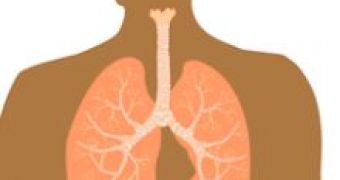A study carried out by researchers at the University of Auckland comes to emphasize the Vitamin D's role in the lungs' health.
Professor Peter Black, one of the authors, says the difference in how well the lungs worked between those with the highest and lowest levels of Vitamin D was substantial.
"It was more pronounced than the difference in lung function between former smokers and non smokers," he said.
"Low levels of Vitamin D have been associated with other diseases such as osteoporosis, high blood pressure, diabetes and cancer. Our research now shows that Vitamin D may also influence how well our lungs work, with greater levels of the vitamin contributing to healthier lungs."
The study carried out by Peter Black and Robert Scragg analyzed in the 1988-1994 interval 14,000 persons with different levels of Vitamin D.
Each participant had their levels of Vitamin D measured, and was given a lung function test which measured the volume of air they could exhale. Lower levels of Vitamin D were associated with lower lung volumes.
Vitamin D also was lower in non-Hispanic blacks and Mexican-Americans, compared with non-Hispanic whites, and it was lower in participants smoking more than 20 cigarettes a day compared to nonsmokers.
In order to produce Vitamin D, humans needs the sun's ultraviolet rays.
"While we must be conscious of the dangers of spending too much time out in the sun, it is still the best source of Vitamin D and everyone should spend some time in the sun each day to get their daily fix," Dr Robert Scragg said.
Vitamina D is also found in salmon, sardines, eggs, beef liver and milk.

 14 DAY TRIAL //
14 DAY TRIAL //